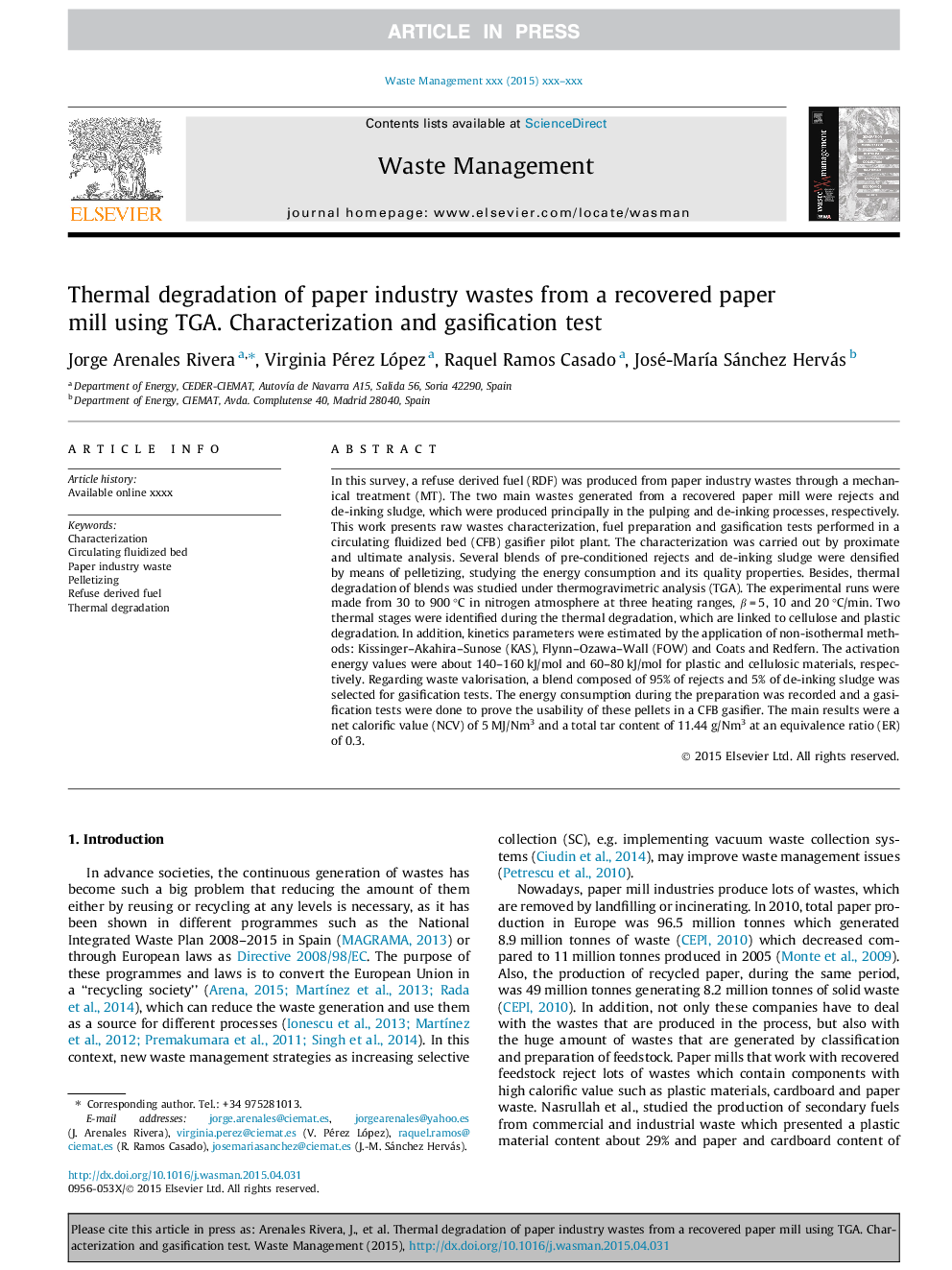| Article ID | Journal | Published Year | Pages | File Type |
|---|---|---|---|---|
| 6354037 | Waste Management | 2016 | 11 Pages |
Abstract
In this survey, a refuse derived fuel (RDF) was produced from paper industry wastes through a mechanical treatment (MT). The two main wastes generated from a recovered paper mill were rejects and de-inking sludge, which were produced principally in the pulping and de-inking processes, respectively. This work presents raw wastes characterization, fuel preparation and gasification tests performed in a circulating fluidized bed (CFB) gasifier pilot plant. The characterization was carried out by proximate and ultimate analysis. Several blends of pre-conditioned rejects and de-inking sludge were densified by means of pelletizing, studying the energy consumption and its quality properties. Besides, thermal degradation of blends was studied under thermogravimetric analysis (TGA). The experimental runs were made from 30 to 900 °C in nitrogen atmosphere at three heating ranges, β = 5, 10 and 20 °C/min. Two thermal stages were identified during the thermal degradation, which are linked to cellulose and plastic degradation. In addition, kinetics parameters were estimated by the application of non-isothermal methods: Kissinger-Akahira-Sunose (KAS), Flynn-Ozawa-Wall (FOW) and Coats and Redfern. The activation energy values were about 140-160 kJ/mol and 60-80 kJ/mol for plastic and cellulosic materials, respectively. Regarding waste valorisation, a blend composed of 95% of rejects and 5% of de-inking sludge was selected for gasification tests. The energy consumption during the preparation was recorded and a gasification tests were done to prove the usability of these pellets in a CFB gasifier. The main results were a net calorific value (NCV) of 5 MJ/Nm3 and a total tar content of 11.44 g/Nm3 at an equivalence ratio (ER) of 0.3.
Related Topics
Physical Sciences and Engineering
Earth and Planetary Sciences
Geotechnical Engineering and Engineering Geology
Authors
Jorge Arenales Rivera, Virginia Pérez López, Raquel Ramos Casado, José-MarÃa Sánchez Hervás,
